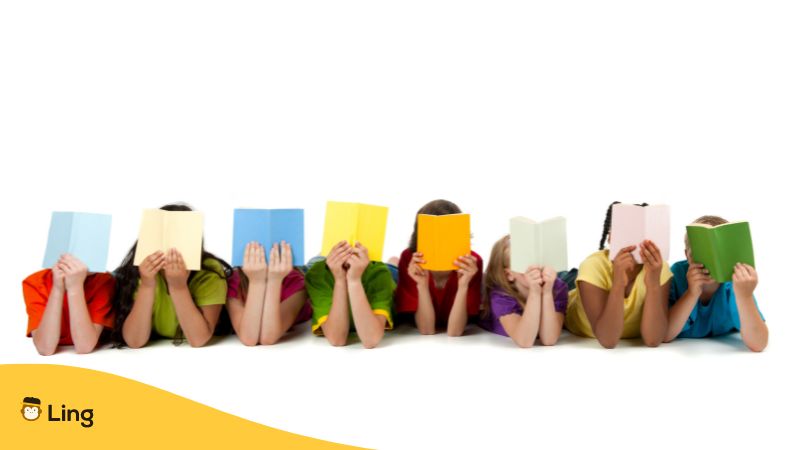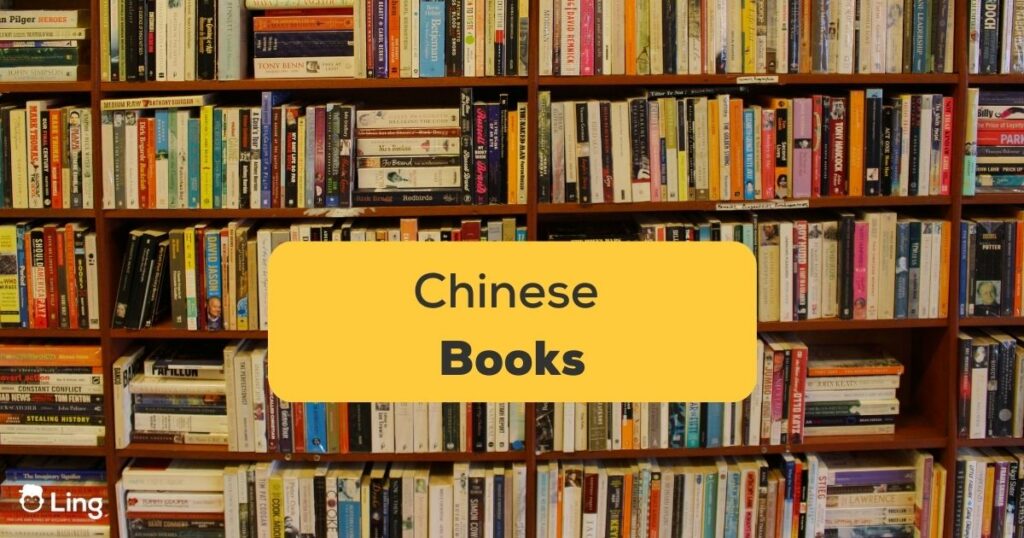China has a rich literary history that dates back over 3,000 years. Chinese literature is known for its unique style, diverse themes, and profound wisdom. It is considered to be one of the oldest and most complex literary traditions in the world. Chinese books can provide you with a glimpse into the richness of China’s history. So let’s get started!
Brief History Of Chinese Literature
Behold, the roots of Chinese literature run deep and stretch back to the Shang Dynasty (c. 1600-1046 BCE), where oracle bones and bronze vessels served as the canvas for the earliest known works of Chinese literature. From these humble beginnings, the Book of Songs emerged during the Zhou Dynasty (c. 1046-256 BCE), becoming the earliest surviving collection of Chinese poetry.
But it was during the Han Dynasty (206 BCE-220 CE) that Chinese literature truly bloomed and reached new heights of creativity. The development of prose paved the way for many classic works that continue to be celebrated and studied to this day. From the pages of these works, readers can glimpse into the heart of Chinese culture, politics, and social changes throughout the centuries.
Through the dynasties that followed, Chinese literature continued to evolve, shaped by the country’s history and culture, resulting in a rich and diverse literary tradition. Even in modern times, the legacy of Chinese literature lives on, a testament to the power of words and the human experience.
Classic Chinese Books

Step into the world of Chinese literature, where the pages are infused with a rich history that spans thousands of years. It’s no secret that some of the most celebrated works of Chinese literature are classic books that have stood the test of time. These books are a window into a bygone era, inspiring readers with their tales of love, war, honor, and spirituality.
From the epic journey of a monkey king to the stirring accounts of Chinese warriors, the Four Great Classical Novels are an essential component of the Chinese literary canon. These literary masterpieces have been read and studied for generations, passed down like precious heirlooms from one era to another. Through their pages, readers get to explore the complex tapestry of Chinese culture and history.
But the world of Chinese literature isn’t limited to the classics. Modern Chinese literature has emerged as a dynamic and exciting field, with writers like Mo Yan, Yan Lianke, and Eileen Chang crafting stories that speak to contemporary issues and concerns. Their works provide a fresh perspective on Chinese life, culture, and society, and have gained a dedicated following among readers around the world.
So come along as we embark on a journey through the world of Chinese literature, exploring the classic books that have defined the literary landscape for centuries, as well as the modern works that are shaping the future of Chinese literature. Get ready to be swept away by the beauty and power of Chinese literature, and discover the stories that have captivated readers for generations.
The Four Great Classical Novels Of Chinese Literature
The Four Great Classical Novels of Chinese literature are legendary masterpieces that have stood the test of time. These books are not just mere pieces of fiction, but they are revered cultural artifacts that have become iconic in Chinese society. Allow me to introduce you to these epic tales that have captivated readers for centuries.
First, we have Journey to the West, a novel that takes you on an exhilarating pilgrimage alongside a monk named Xuanzang. This epic tale, written by Wu Cheng’en in the 16th century, is full of adventure and wonder, featuring magical creatures such as the notorious Monkey King. It is a tale that has transcended generations and has become a part of Chinese folklore.
Next, we have Romance of the Three Kingdoms, a gripping historical novel that transports readers back to a time of power struggles and military campaigns. Written by Luo Guanzhong in the 14th century, it is set during the turbulent period of the Three Kingdoms. The novel is famous for its portrayal of heroic characters such as Guan Yu and Zhuge Liang, and its dramatic depictions of battle and strategy.
Then we have Water Margin, also known as Outlaws of the Marsh. Written by Shi Nai’an in the 14th century, this novel tells the story of a band of rebels who stand up against corrupt officials and oppressive rulers during the Song Dynasty. With over 100 characters, each with their unique story and personality, Water Margin is a captivating read that delves deep into themes of justice and loyalty.
Last but not least, we have Dream of the Red Chamber, considered one of the greatest works of Chinese literature. Written by Cao Xueqin in the 18th century, this novel tells the story of Jia Baoyu and his love for his cousin Lin Daiyu. The novel is noted for its vivid portrayal of life during the Qing Dynasty and its exploration of themes such as love, family, and destiny.
The four great classical novels of Chinese literature are not just books, but cultural treasures that offer readers a glimpse into the rich history and traditions of Chinese culture. These epic tales are essential reads for anyone interested in literature, history, or cultural studies.
Other Notable Classic Chinese Books
The Analects of Confucius – This book is a collection of sayings and teachings attributed to the philosopher Confucius, who lived in the 5th century BCE. The Analects contains teachings on ethics, morality, and social behavior that continue to influence Chinese society to this day.
Tao Te Ching – Written by Lao Tzu in the 6th century BCE, this book is considered the foundational text of Taoism. It contains teachings on the concept of the Tao, or “the way,” and the practice of living in harmony with nature.
The Art of War – Written by Sun Tzu in the 5th century BCE, this book is a treatise on military strategy and tactics. It has been influential not only in military thinking but also in areas such as business and politics.
Classic Chinese books are a treasure trove of wisdom, history, and culture. The Four Great Classical Novels and other important works have stood the test of time and continue to inspire readers today. By reading and studying these books, we can gain a deeper appreciation for the richness and complexity of Chinese literature and culture.
Popular Translations Of Classic Chinese Books
The Four Great Classical Novels of Chinese literature have been translated into various languages, including English. Notable translations include:
- “Journey to the West” translated by W.J.F. Jenner
- “Romance of the Three Kingdoms” translated by Moss Roberts
- “Water Margin” translated by J.H. Jackson and Fang Chao-ying
- “Dream of the Red Chamber” translated by David Hawkes
Modern Chinese Books Translated Into English
With the rise of contemporary Chinese literature, many modern Chinese books have been translated into English. Likewise, you can also read Chinese versions of many modern stories. Many things changed after World War II, even the family life of ordinary people, and many new stories emerged as a result. Life in rural china was also enhanced as it experienced a cultural revolution.
Notable modern Chinese books translated into English include:
- “Red Sorghum” by Mo Yan
- “The Three-Body Problem” by Liu Cixin
- “The Dark Road” by Ma Jian
- “Serve the People!” by Yan Lianke
Benefits Of Reading Chinese Books In Translation
Reading Chinese books in translation can unlock hidden treasures of knowledge, providing fascinating insights into the culture and history of China. It can make you step into a different cultural perspective and broaden your worldview, enhancing empathy towards different cultures and ways of life.
Not only does reading Chinese books in translation expose readers to different styles and vocabularies, but it can also help language learners improve their Chinese language skills. Explore classic and modern Chinese literature and immerse yourself in a captivating reading experience that is sure to ignite your imagination.
Wrapping Up

Reading Chinese books in translation is an adventure that provides endless benefits. From increased cultural understanding to language learning and pure entertainment, the wonders of Chinese literature are just waiting to be discovered!
So go ahead and get lost in the pages of the Four Great Classical Novels of Chinese literature and their Chinese history, translated into various languages (including English), or dive into the works of contemporary Chinese authors, such as Mo Yan, Liu Cixin, and Yan Lianke.
If you want some help understanding Chinese literature, or even books in other languages, you can use Ling, which has come up with exciting ways for you to learn 50+ new languages.
If you’re interested in Chinese culture, you can check out our blog posts about summer vacations in China and Chinese food.
Download Ling from Google Play Store or App Store to start learning Chinese.



































































